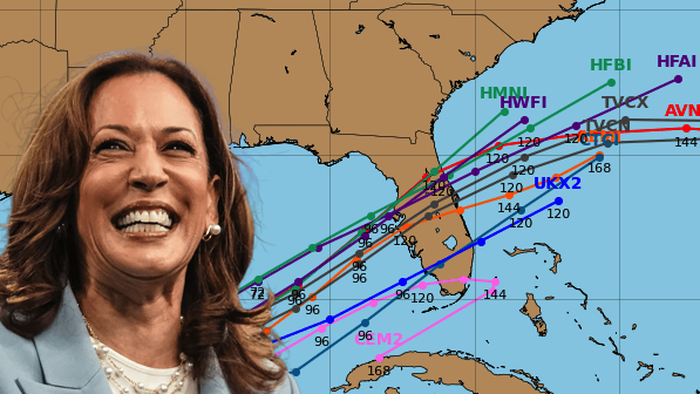Hurricane Helene has wreaked havoc across the Southeastern United States, prompting significant scrutiny of the Biden-Harris administration’s management of disaster relief efforts, particularly those coordinated through the Federal Emergency Management Agency (FEMA). As the storm passed, it became increasingly evident that FEMA’s response was inadequate, with reports indicating that their personnel were stationed away from main roads, making them difficult to locate for those in need. FEMA’s admission of arriving a week late raised further alarm on their operational efficiency, casting doubt on their capability to handle the aftermath of such disasters and highlighting a failure in emergency preparedness.
In the wake of Hurricane Helene, attention has shifted to another brewing storm in the Gulf of Mexico, described as having a high probability of developing into a tropical depression or storm in the coming days. The National Hurricane Center noted that this system could pose additional threats to Florida and surrounding areas. As meteorologists monitor the situation, concerns about the potential for flooding and severe weather hazards unfold, underscoring the compounding challenges facing disaster response agencies in an already turbulent hurricane season.
The state of FEMA’s funding has come under intense scrutiny, particularly after Homeland Security Secretary Alejandro Mayorkas mentioned that the agency lacks sufficient resources to support ongoing recovery efforts. Some Republican lawmakers have pointed fingers at the administration, contending that funds earmarked for disaster relief have been misallocated to support migrant assistance initiatives instead. This has ignited a political firestorm, with accusations flying between parties about the mismanagement of critical taxpayer funds that are supposed to safeguard American citizens during natural disasters.
Whistleblower accounts within FEMA have fueled allegations of misusing taxpayer dollars, with claims that essential pre-disaster aid was deliberately withheld, hampering relief efforts. As this narrative develops, public trust in FEMA and the Biden administration has been severely tested, as people express growing dissatisfaction with how disaster recovery is being handled. Representative Matt Gaetz, among others, has been vocal in demanding accountability, with warnings that first responders and service members have been left idle without clear direction following Hurricane Helene.
Critics of the Biden administration are drawing parallels between their handling of recent disasters and the perceived failures of past administrations during crises such as Hurricane Katrina. Specific incidents, like President Biden’s reported absence at the beach during the hurricane’s landfall and Vice President Harris engaging in fundraising events while the situation deteriorated, have prompted comparisons to historical apathy in disaster response. This has led to a charged political atmosphere as Americans head into the upcoming elections, fueling skepticism of the current leadership.
The confluence of a failing disaster response mechanism, financial resource mismanagement, and an impending weather threat paints a dire picture for the Biden administration’s ability to lead effectively through crises. If an additional storm strikes the Southeast, the ramifications could not only exacerbate existing problems but also have severe implications for the administration’s credibility. As the nation grapples with these challenges, a growing sentiment of urgency and demand for effective leadership appears to be rippling through the electorate, setting the stage for a critical reckoning heading into the election period.

